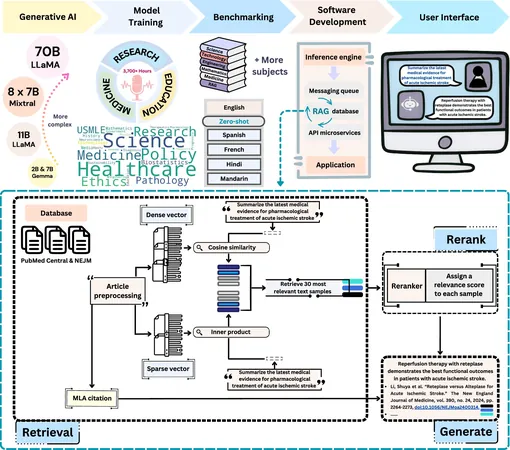
Revolutionizing AI: Meet PodGPT, the Podcast-Powered Genius
2025-07-07
Author: John Tan
A New Era for AI in Science and Medicine
Generative artificial intelligence (AI) is soaring to new heights, especially with the emergence of large language models (LLMs). These cutting-edge technologies have transformed how we analyze data, interpret information, and create content. From science to medicine, models like OpenAI's GPT-4 are paving the way for incredible advancements. Yet, there's a treasure trove of potential that's still waiting to be tapped into—specifically, the integration of non-traditional data, like audio.
Introducing PodGPT: Learning from Conversations
Researchers from Boston University are changing the game with their groundbreaking program, PodGPT. This innovative AI model learns from an extensive library of science and medicine podcasts, allowing it to enhance its ability to understand and answer complex scientific questions. Published in the journal npj Biomedical Innovations, this work challenges the conventional approach to AI training.
Real Conversations, Real Insights
"By incorporating spoken content, we aim to enrich our model's grasp of conversational language and broaden its application across specialized STEMM fields," states Dr. Vijaya B. Kolachalama, the study's lead author and a professor at Boston University. What sets PodGPT apart is its reliance on real-life conversations—expert interviews and discussions—rather than solely written text, enabling it to grasp how science is actually discussed in everyday settings.
The Study That Proves It Works
The researchers compiled over 3,700 hours of publicly available science and medicine podcasts, converting the audio into text with sophisticated software. Subsequently, they trained their model on this wealth of information. To test PodGPT's prowess, they challenged it with a variety of quizzes covering subjects like biology, math, and medicine, including multilingual questions. The results were astounding: integrating audio content significantly boosted the model’s ability to generate accurate and comprehensive answers.
A Future Full of Promise
This pioneering study reveals that voice-based media such as podcasts can effectively train AI tools, opening a portal to a universe of audio data—from lectures to interviews. Kolachalama envisions a world where diverse audio content creates smarter, more human-like technology, making science accessible in multiple languages. This approach not only democratizes access to critical knowledge but also empowers individuals to make better-informed health and educational decisions.
The Next Steps in AI Evolution
As researchers delve deeper into this innovative technology, the implications are clear: PodGPT is not just a leap forward in AI training, but a beacon of knowledge that could reshape how we engage with science and medicine. With more people able to listen to expert discussions, we may foster a more informed and healthier global community.


 Brasil (PT)
Brasil (PT)
 Canada (EN)
Canada (EN)
 Chile (ES)
Chile (ES)
 Česko (CS)
Česko (CS)
 대한민국 (KO)
대한민국 (KO)
 España (ES)
España (ES)
 France (FR)
France (FR)
 Hong Kong (EN)
Hong Kong (EN)
 Italia (IT)
Italia (IT)
 日本 (JA)
日本 (JA)
 Magyarország (HU)
Magyarország (HU)
 Norge (NO)
Norge (NO)
 Polska (PL)
Polska (PL)
 Schweiz (DE)
Schweiz (DE)
 Singapore (EN)
Singapore (EN)
 Sverige (SV)
Sverige (SV)
 Suomi (FI)
Suomi (FI)
 Türkiye (TR)
Türkiye (TR)
 الإمارات العربية المتحدة (AR)
الإمارات العربية المتحدة (AR)